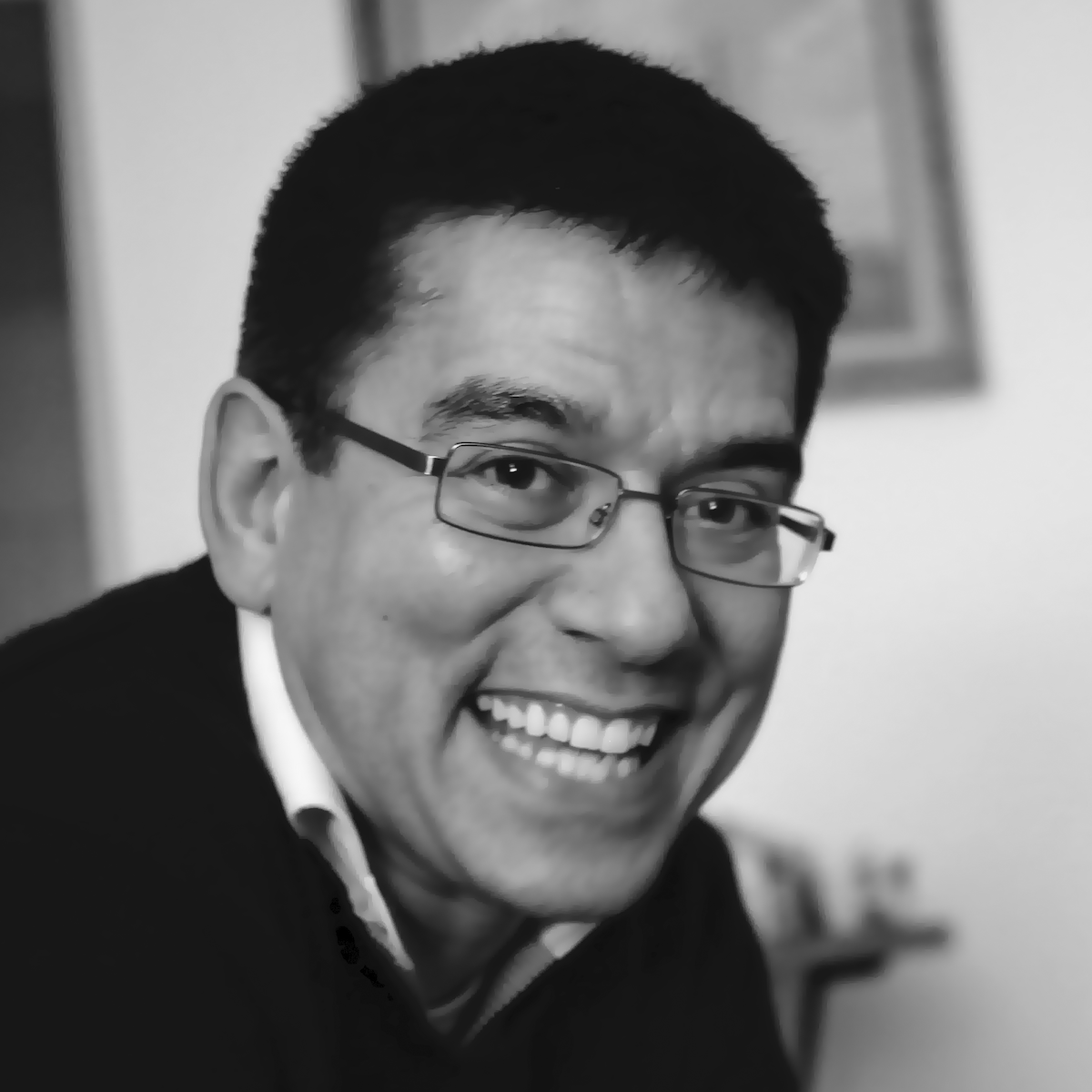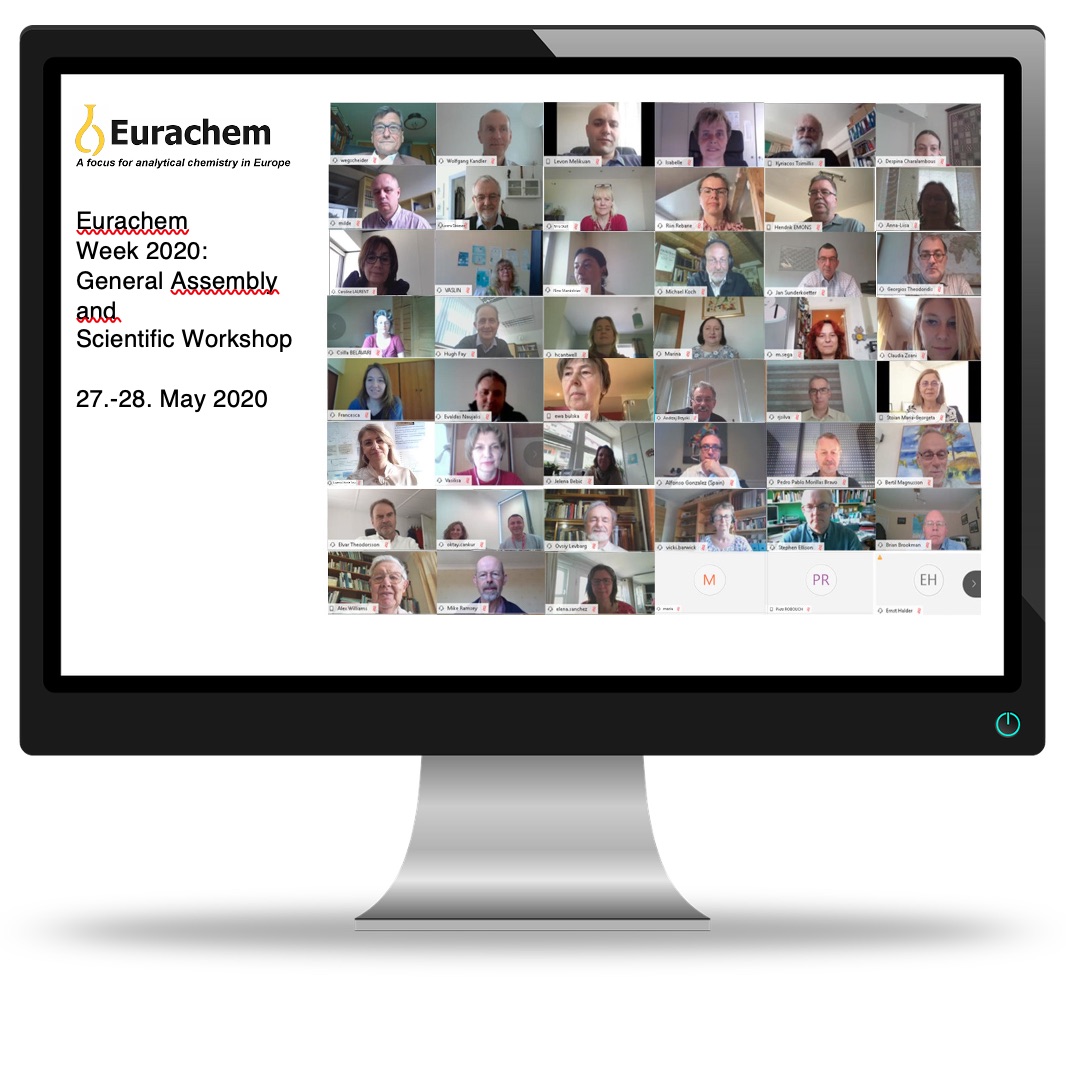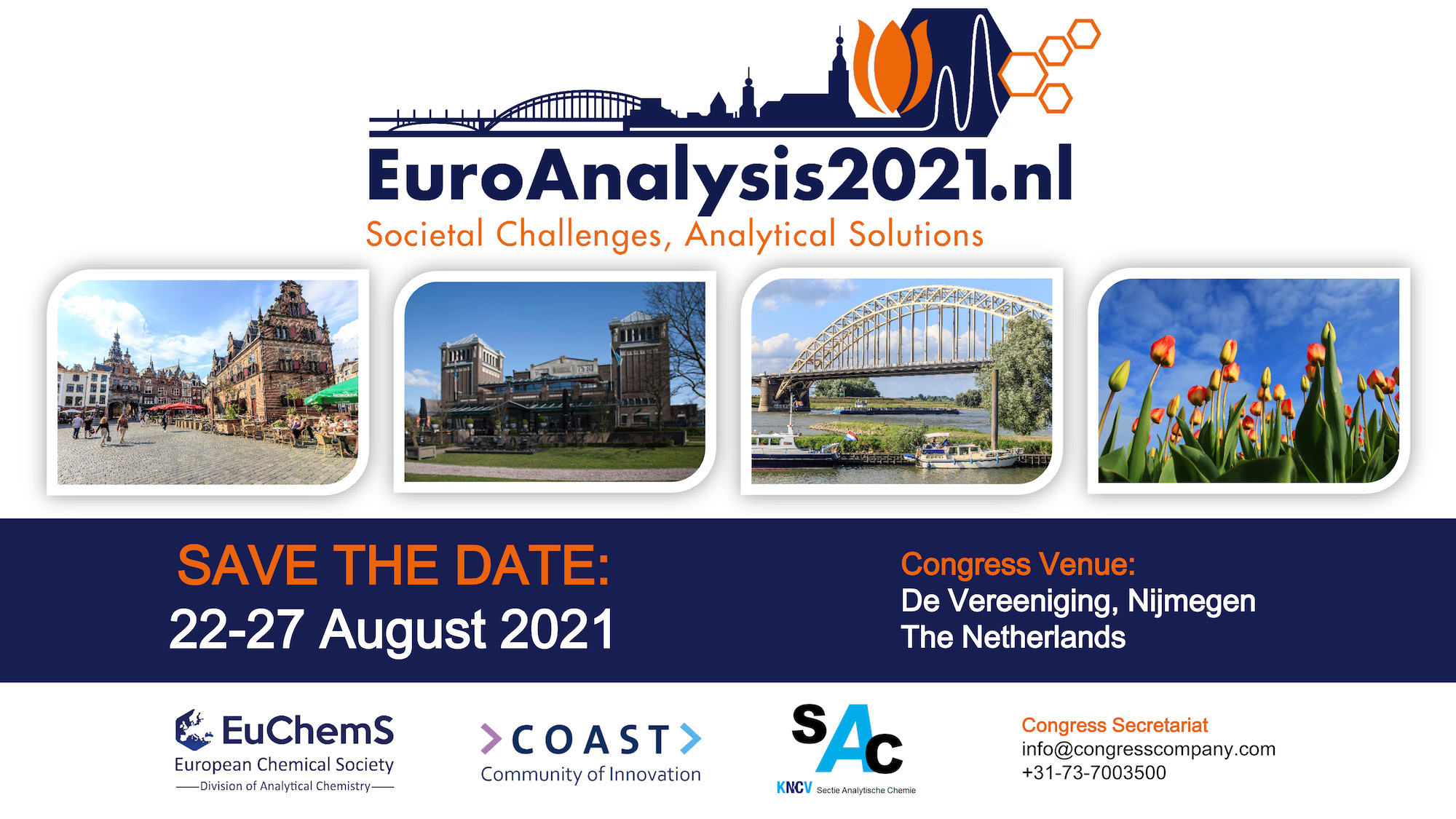Simon-Widmer Award 2021 to Andrew deMello, ETH Zurich
 The Swiss Chemical Society is proud to announce the winner of the 2021 Simon-Widmer Award in Chemistry. The Society honors
The Swiss Chemical Society is proud to announce the winner of the 2021 Simon-Widmer Award in Chemistry. The Society honors
Prof. Andrew deMello,
ETH Zurich
for his great contributions to the field of bioanalytical science and microfluidic technology.
The award lecture takes place at the SCS Fall Meeting 2021 on September 10.
The Division of Analytical Sciences and the SCS Board of Directors like to congratulate Andrew in the name of the whole society.
About Andrew deMello (source: demellogroup.ethz.ch)
Andrew is currently Professor of Biochemical Engineering in the Department of Chemistry and Applied Biosciences at ETH Zurich and Head of the Institute for Chemical and Bioengineering. Prior to his arrival in Zurich he was Professor of Chemical Nanosciences and Head of the Nanostructured Materials and Devices Section in the Chemistry Department at Imperial College London.
His research interests cover a broad range of activities in the general area of microfluidics and nanoscale science. Primary specializations include the development of microfluidic devices for high-throughput biological and chemical analysis, ultra-sensitive optical detection techniques, nanofluidic reaction systems for chemical synthesis, novel methods for nanoparticle synthesis, the exploitation of semiconducting materials in diagnostic applications, the development of intelligent microfluidics and the processing of living organisms.
Céline Wittwer, SCS
15.12.2020
Report: Eurachem General Assembly and Scientific Workshop 2020
 The Eurachem Week 2020 was scheduled for week 25th to 29th May 2020 at Bucharest, Romania. As topic for the two days workshop on Monday and Tuesday “Quality Assurance Elements for Analytical Laboratories in the University Curriculum” was selected by the organisers.
The Eurachem Week 2020 was scheduled for week 25th to 29th May 2020 at Bucharest, Romania. As topic for the two days workshop on Monday and Tuesday “Quality Assurance Elements for Analytical Laboratories in the University Curriculum” was selected by the organisers.
Due to the COVID-19 pandemic the event had to be cancelled in March. In April the Executive Committee scheduled the General Assembly for 27th and 28th May and the Workshop for 14th and 15th July 2020 as electronic meetings. Both events were very well organized by Eurachem Romania.
Dr. E. Halder, E-mail: , Eurachem-CH
Eurachem events 2020 go online
The new Coronavirus SARS-CoV-2 to the organizers of the Eurachem Week 2020 a good shaking. Instead of visiting Bucharest, the capital of Romania, the organizing committee headed by Eugenia Eftimie Totu of the University "Politehnica" of Bucharest, switched to the Internet world. The Eurachem Week was split into two parts, the 36th General Assembly and the two days workshop. At that time online events where for the organizers and most participants a new experience.
36th General Assembly of Eurachem
The online General Assembly (GA) was scheduled for 27th and 28th May 2020. The GA was headed by the chairperson of Eurachem Marina Patriarca (Italy), supported by the secretary of Eurachem Francesca Rolle (Italy).
The election and voting by correspondence was moved to the run-up of the meeting. The results of the elections are: Isabelle Vercruysse (Belgium) new vice-chair (incoming chair), Michael Koch (Germany) and Riin Rebane (Estonia) members of the Executive Committee, Elena Sanchez (UK) Secretary and Treasurer and Hugh Fay (Ireland) financial examiner.
Following the EU-exit on 31st January 2020, the UK was no longer a member of the EU or other categories of the Eurachem Memorandum of Understanding (MoU) that qualify for full membership of Eurachem. This was a rather strange situation since Eurachem-UK was the driving force at the foundation of Eurachem. They were very active during all the years and many contributions to the activities of Eurachem came from Eurachem-UK. The MoU had already been modified at the General Assembly 2019 and based on that modification and on the application of Eurachem-UK the full membership was unanimously approved by the GA.
The usual agenda was followed with the update on revised Eurachem policies and Eurachem Guides.
The handover of chairpersonship from Marina Patriarca (Italy) to Vicki Barwick (UK), former vice-chair/incoming chair and secretariat from Francesca Rolle (Italy) to Elena Sanchez (UK) was officially implemented.
Despite the fact that the meeting was on-line, a discussion forum was realised. Richard Mulders, trainer with extensive experience in software validation was invited. He is an expert for the Dutch accreditation board on ISO/IEC 17025 and ISO 15189. The speaker provided a very good introduction to the guide for validation of automated systems in pharmaceutical manufacture GAMP 5, the guide which aims to achieve computerised systems that are fit for purpose. The GAMP 5 is applicable to GxP, ISO/IEC 17025 and ISO 15189. The guide explains what needs to be done and includes annexes which explain how it needs to be done. The introduction was followed by a lively discussion. So far software validation is not among the topics to which Eurachem gives attention. In the future that might change.
- Day 1 was concluded by the discussion about the evolution of the communication within Eurachem.
- Day 2 started with the reports of the working groups, followed by the reports of the national Eurachem groups. Finally the reports of european and global stakeholder and liaison organizations concluded the 36th GA of Eurachem.
All participants thanked Eugenia Eftimie Totu for the very smooth running of the meeting. The on-line GA was a very successful premiere for Eurachem. Nevertheless all participants hope that we can meet next time again face-to-face.
Online Workshop on Quality Assurance Elements for Analytical Laboratories in the University Curriculum
The meeting included invited presentations, contributed oral presentations, and discussion and poster sessions.
Vicki Barwick, Eurachem chairperson, introduced Eurachem and its mission.
In a second talk she emphasised the importance of a common language of measurement.
“The importance of the laboratory quality management system in the academic curricula in developing appropriate student competences for our current societal needs” was the topic of the contribution of Cecilia Arsene of the Alexandru Ioan Cuza University of Iasi, Romania
Mirella Buzoianu, Director National Institute of Metrology, INM-RO, Romania gave an introduction on “The National Metrology Infrastructure – support for analytical laboratory activity”.
“Teaching Metrology and Examinology in Chemistry at the University” was the subject of Ricardo Bettencourt da Silva of the University of Lisbon, Portugal. He defines the main goal of universities as
- Carrying out scientific research studies
- Producing solutions to the problems of humanity and a country
- Training the human force which a country needs
The curriculum of a university has to support these goals.
Wolfhard Wegscheider of the Montan-Universität Leoben, Austria reflected on the subject “uncertainty in the classroom”.
The topic “Quality and reliability in Analytical Chemistry” was the content of the contribution of Raluca-Ioana Stefan-van Staden, Head of Laboratory of Electrochemistry, National Institute of Research for Electrochemistry and Condensed Matter, Romania.
“The pros and cons for the laboratory quality management system in the academic environment” were discussed by David Milde, Palacky University in Olomouc, Czech Republic. He reflected about the impact of an accreditation of a laboratory at a university as service laboratory for the industry.
This presentation concluded the first day of the workshop.
The second day was started with “Good laboratory practice in analytical chemistry” by Jacobus Frederick van Staden – Director PATLAB, Romania
Bertil Magnusson SP Technical Research Institute of Sweden explained the internal quality control in an analytical laboratory based on the Nordic Trollbook.
Based on his long lasting experience, Kyriacos Tsimillis, Division of Quality Assurance, Pancyprian Union of Chemists talked about “Basic elements of quality assurance for university graduates – practical needs after a 30-year experience”. He proposed a framework of basic elements on quality assurance to be included in the curriculum of chemistry departments of universities.
“Quality assurance of analytical measurements – a vital element in safety performance in nuclear field” was the subject of Elena Neacsu, Management of Radioactive Waste Department, Horia Hulubei National Institute for R&D in Physics and Nuclear Engineering, Romania. Her clear and undisputed statement was, that no quality assurance system means no accurate results and therefore the results are not fit for purpose.
“From characterisation to validation, a journey through MSc applied analytical chemistry” was the subject of Victoria Hilborne, Department of Chemistry, University College London, U.K. The aim of the curriculum is to train the next generation of analytical scientists in state-of-the-art methods. It is designed to provide comprehensive training in analytical chemistry and its implementation. A thorough understanding of error analysis, data processing and data presentation is at the foundation of the programme.
Stephen Ellison, LGC Limited, U.K. talked about “Measurement uncertainty and conformity assessment in analytical measurement – considerations for the university curriculum” His conclusion was, that a conformity assessment with measurement uncertainty can be a complex topic. A basic understanding of limits, decision rules and measurement uncertainty (as an interval) is essential. A comprehensive understanding is likely to require extended statistical training or qualifications.
Quality Assurance in Higher Education was the topic of Delia-Laura Popescu, University of Bucharest, Romania
“Open Educational Resources for Teaching Environmental Analysis” was discussed by Camelia Draghici, University Transilvania of Brasov, Romania. There are three accepted meanings for the term “open learning”:
- Open Education in Open Universities
- Massive Open Online Courses (MOOCs)
- Open Educational Resources (OERs)
The development of MOOCs and OERs started in Europe more than ten years ago. COVID-19 pandemic gave a unexpected and heavy push to the interest and the development of open educational resources.
The last contribution came from Richard Mulders, Principal Consultant RESCOP B.V. Netherlands about “Computerized Systems Validation”. The speaker provided a very good introduction to the guide for validation of automated systems in pharmaceutical manufacture GAMP 5, the guide which aims to achieve computerised systems that are fit for purpose. The GAMP 5 is applicable to GxP, ISO/IEC 17025 and ISO 15189. The guide explains what needs to be done and includes annexes which explain how it needs to be done.
For participants of the GA the presentation was a highly valued repetition.
Scheduled Eurachem Events 2021
Eurachem Week 2021 is planed from May 17th to May 21st in Prague, Czech Republic. As topic for the workshop “Trends & Challenges in ensuring quality in analytical measurements” has been selected. More details are available on www.eurachem2021.cz. However, if travel restrictions due to COVID-19 remain in place during 2021, contingency plans are prepared to run both the scientific workshop and General Assembly as virtual events on the same dates.
The 10th Eurachem Workshop on Proficiency Testing in Analytical Chemistry, Microbiology and Laboratory Medicine was originally scheduled for October 2020. It has been rescheduled to 27th to 30th September 2021. More details at https://eurachem-pt2021.org/ .
Dr. E. Halder, E-mail: , Eurachem-CH
29.12.2020
Ions and Photons in Analytical Science (IPAS2021)
1-day symposium in analytical sciences entitled "Ions and Photons in Analytical Science (IPAS2021)" will be run during the lecture-free week just after Easter 2021, on Friday, April 9, 2021. It has been more than a decade that a symposium dedicated exclusively to analytical science was organized at ETH Zurich – the last time was 2009, when the quite successful and well attended symposium “Analyze That!” took place at ETH Hönggerberg – reason enough to review how the field has moved forward in the last decade.
Friday, April 9, 2021 - ETH Hönggerberg, Zurich.
The title of the 2021 symposium, "Ions and Photons in Analytical Science", which will be hosted by the Department of Chemistry and Applied Biosciences, was chosen because there is a rich and long tradition of analytical chemistry research at our department that relies on optical and charge detection:
- membrane electrodes to selectively measure ion concentrations in solution (Prof. W. Simon, Prof. E. Pretsch);
- elemental analysis using ICP-MS (Prof. B. Magyar, Prof. D. Günther);
- organic and biomolecular mass spectrometry (Prof. J. Seibl, Prof. R. Zenobi);
- fluorescence for ultrasensitive detection in biological systems (Prof. P. Dittrich)
- nanoscale vibrational spectroscopy & imaging (Prof. R. Zenobi).
The symposium will bring together 10 international experts, many of them with ties to ETH Zurich, who have all agreed already to lecture on the state-of-the-art in analytical methodologies and their applications during this symposium.
Call for Abstracts
The core of the program are plenary talks by invitation only. There will be the possibility to contribute to the program with posters from young researchers and stands/booths from companies.
Deadlines
Submission of oral presentations (by invitation only): January 31, 2021
Registration
Registration deadline: January 31, 2021
Organizing Committee
The organization lies in the hands of:
- Dr. S. Giannoukos (ETHZ),
- Prof. P. Sinues (Univ. Kinderspital Basel),
- Prof. R. Zenobi (ETHZ).
- Ms. B. Bräm (ETHZ),
More Information: www.ipas2021.ethz.ch
Sarah Schmitz, SCS
16.10.2020
Cancelled: CHanalysis 2020, Beatenberg, May 7–8, 2020
In response to the outbreak of COVID-19 and to protect the health of our community members, we decided to cancel the CHanalysis 2020. We fully support and comply with the regulations of the Swiss government and the measures taken by employers of our members.
We plan to continue the series of CHanalysis with the next event in spring 2021. So, keep your eyes open for a registration call in late 2020!
The Division Analytical Sciences of the Swiss Chemical Society (SCG/DAS) is organizing CHanalysis, a meeting of Swiss analytical scientists. You are cordially invited to participate in the next meeting in sring 2021.
The goal is to stimulate a stronger cooperation among persons working in different areas of analytical sciences. Scientists from applied and fundamental research, from industry, education, and regulation are welcome.
Conference Location
Dorint Hotel
Hubel 114, 3803 Beatenberg
http://hotel-interlaken.dorint.com/
Conference Office and Contact
Esther Wolff
c/o Eawag
Überlandstrasse 133
CH-8600 Dübendorf
Phone: +41 58 765 52 00
David Spichiger, SCS
01.10.2019
EuroAnalysis 2021, save the date: 22-27 August 2021
EuroAnalysis 2021
De Vereeniging, Nijmegen, The Netherlands
www.euroanalysis2021.nl
The Theme for the 21st EuroAnalysis is to address the Grand Societal Challenges with Analytical Chemistry Solutions. We believe that revolutions in resolution, analysis of intact systems, bringing the lab to the sample, and assuring the availability of well-trained analytical chemists are all needed in order to combat the challenges ahead.
More information
- Welcome to EuroAnalysis 2021
- Commitees
- Programme
- Abstracts
- Registration
- Venue
- Practical info
- Nijmegen
- Exhibition & sponsoring
- Contact
David Spichiger, SCS
01.10.2019
Page 245 of 305


